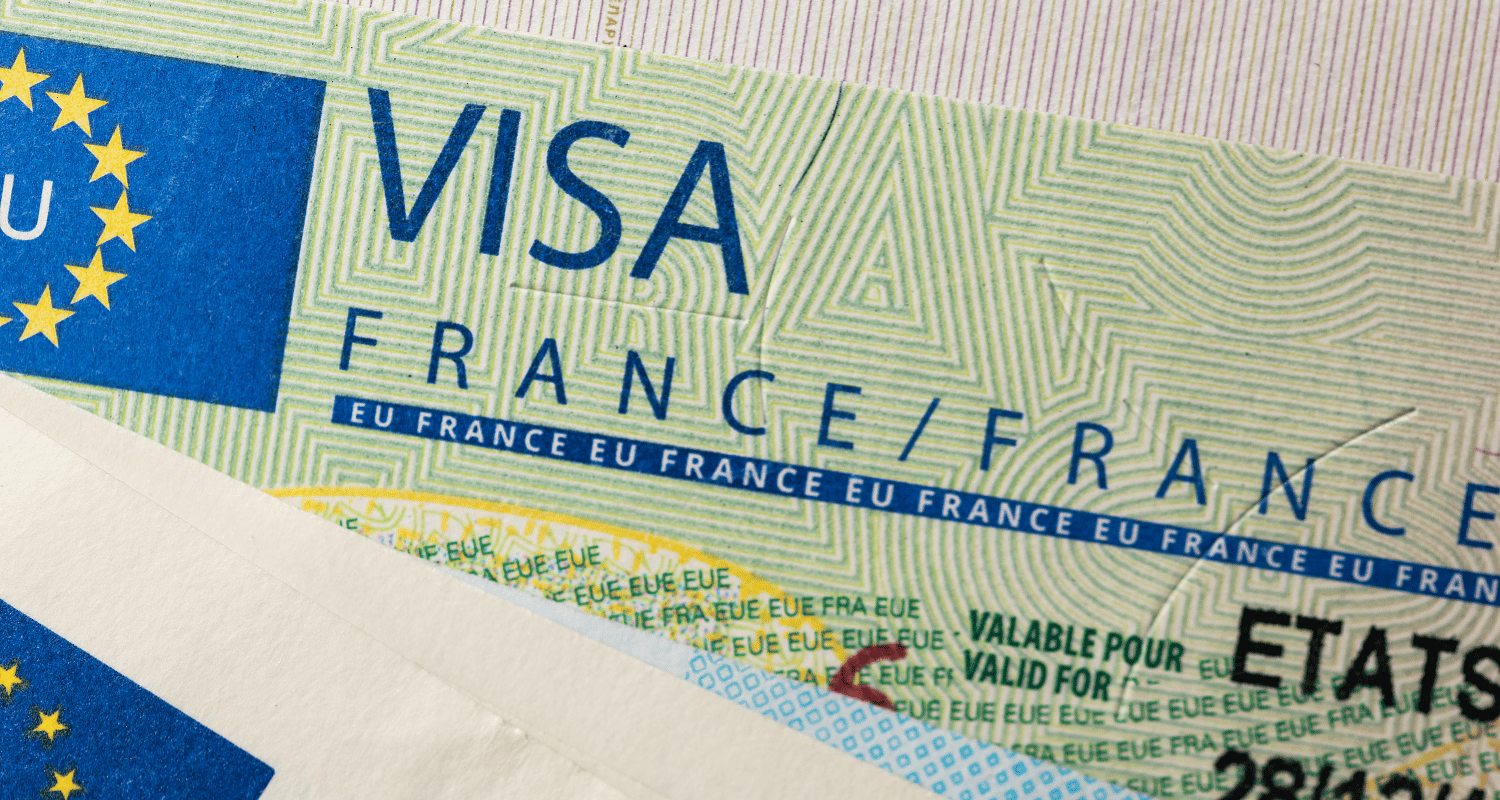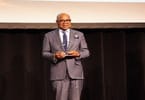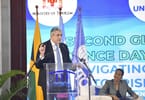Taleb Rifai is the ad interim secretary general of the United Nations World Tourism Organization. He was recently selected by the organization’s executive council to become the next secretary general. That decision is to be ratified by the organization’s general assembly, which is set to take place in Astana, Kazakhstan, this coming October. Mr. Rifai spoke with eTN exclusively during the recently-held World Travel & Tourism Council’s Ninth Global Travel & Tourism Summit, which was held in Florianopolis, Brazil.
eTN: First, I’d like to congratulate you for getting this election for the executive council. My first question then is, now you got the vote – what now?
Taleb Rifai: Before getting the vote and for the last six months, I had a declaration and a statement of intent, which outlined a very, very detailed program, which was shared, discussed, debated with all the members, and that was the mandate on which I was elected on. So I am sticking to that, and I am elaborating that.
eTN: How confident are you that the general assembly in Kazakhstan is going to ratify your selection by the executive council to the secretary general post?
Rifai: Quite confident.
eTN: Is there any possibility that the general assembly would not ratify you?
Rifai: There is no reason why not.
eTN: The road to your selection has been quite contentious. A lot of the candidates have been very aggressive in pushing for the position that now you hold. Why do you think this is?
Rifai: Well, I would like to see that as a reflection of the importance that this organization has come to attend, so the selection, as you said, was quite contentious. I must admit, however, that probably the stakes were raised a bit too high in this one, to a level that I think we ought to learn some lessons from in the future. But the fact is that from now on, probably, elections to this particular post, to this particular organization, are going to be heated and highly contested, and there’s a healthy side to that.
eTN: Why do you think the stakes were so high with this one, because the other elections, if you may, they weren’t as talked-about as this one?
Rifai: Again as I say, I think the importance of where this organization heads from now on plays a big role in this. People are beginning to see that they need to ensure that this vehicle, this umbrella organization, heads in the right direction. Tourism itself is at crossroads, so why shouldn’t UNWTO be at crossroads as well? So it’s a state of affairs and the attained importance of this organization, in addition, of course, to the emergence of new players and new challenging ideas. I would like to see that as healthy, rather than otherwise.
eTN: I hope it ends up healthy, because right now we do have challenges that we are facing, and working together would actually really help.
Rifai: Absolutely. In that regard, if I may say, I intend very aggressively to embark on a path of bringing all of the players together in as much as we can contribute to that. My very attendance here with a big delegation, relatively speaking, from UNWTO less than a week after my election, at this WTTC summit is to send a very, very clear message. And I met with the executive board of WTTC, and that’s exactly what I told them. Our arms are extended, we need to work together, we can’t anymore be seen as just playing our bits in our own separate corners. And I intend to be an active player, amongst other players, of course, that is going to bring all this together into some kind of a minimum coherence and a minimum platform.
eTN: At the UNWTO general assembly in Cartagena, two problems were identified. What is the status of these two problems, and can you elaborate more on how UNWTO is moving forward on these two challenges?
Rifai: You are talking about long-term challenges. These two issues are becoming even more important now. Let me very quickly tell you how we have been moving and then tell you why they have become more important. How we have been moving on the issue of climate has been, I think, quite significant. I think we have positioned ourselves as an industry within the global players on the issue of climate change in such a way that it has become much more meaningful and integrated, particularly after the Davos conference and declaration, which, of course, was a consequence of all of this, where we adopted a very, very clear decision. The decision and direction was that we are part of this all challenge; we have to bear our responsibilities. We came up clearly in identifying in what the size and the extent of our responsibility as a sector is towards that problem – no denial about it. But at the same time, also identifying the threats to that industry from the climate change being both a victor and a victim of climate change. And it’s along those lines now that we are proceeding with other players, particularly our sister organizations within the UN system – UNE environmental program – and other global players and other NGOs. I think we are heading in the right direction. This is a long way march. It’s not something that you could show results in a month or two. It is to be judged based on how correct are you moving along that path, and are you consistent with it as opposed to show results between a month, one month to another. We need to start showing results as we move along. On the issue of poverty, that is by far a much more complicated issue as well, because many, many other issues come into play. Of that regard, our ST-EP (Sustainable Tourism – Elimination of Poverty) initiatives, our ST-EP programs, are maybe not impacting the situation on the ground as much as one would have hoped to because of the magnitude of the challenge, and it is not an initiative or two of that size that would change the state of the world or eliminate poverty. But the amount of awareness as to the potential of tourism towards poverty alleviation is tremendous. So judging what we have done should be based on how much people have become aware of the potential of this sector into contributing to that issue, as opposed to how much really we have realistically contributed to it. Why is this becoming more important than ever before? Because of the current economic situation.
eTN: Actually, that leads me to my next question. How does the current economic situation and the emergence of a swine flu threat impact these two major problems?
Rifai: Quite significantly, quite significantly. But I think we need to distinguish between these two issues that coincided to impact our industry at the same time. The economic situation is not something that’s going to go away tomorrow. It is something that’s going to be living with us for quite awhile, and it’s going to be closing a major, major transformation in our mindset and our way of thinking. It is definitely not an issue of going back to the crisis before the crisis. It’s not going back to where we were. It is moving to where we ought to be, and that’s a much more complicated challenge. The flu situation, on the other hand, is something that happened, can happen in the future, will happen in the future in other places, in other ways, and in other means, but it’s being handled the right way. And it’s being handled in accordance to plans that we had in place anyhow. We are much more prepared in the history of mankind to deal with a situation like this than we have ever been prepared for that. We simply have to do the right thing, and we’ll get out of it.
eTN: The credibility of the organization or the source of information is very critical. For eTurboNews, we have been using the World Health Organization as our main source in our swine flu updates. Is WHO an organization you’re working with?
Rifai: Absolutely, absolutely. We have agreed not just within the UN system, but even globally, to speak in one voice and hear one line, and that is the WHO line. We have to do that; we absolutely have to do that. We can’t demonstrate and exhibit our own different interpretations in our different ways. The most important part of this, besides the major medical part, which is larger than the concern of our industry, is that WHO is very clearly saying, no travel restrictions, because travel restrictions have not proven to be contributing to the spread of the disease, whether you travel or not. What really needs to be done is in the realm of measures and precautions and steps and manuals and guidelines that have to be followed, and stopping travel is not one of them. So we are following along the same line. The more significant part in the way we are interacting in the sector in this particular flu situation, is that the tourism sector represented in our representative as UNWTO within the UN system and within UNWTO or within WHO are plugged so integrally. We are in constant contact with them. We have our people inside the kitchen. We have our voice being clearly heard within the medical sector, and I think that’s an extremely important element, because you are always reminded of the consequences of whatever you do or you don’t do, whatever you say and you don’t say and its impact on the tourism sector.
eTN: The word “change” was very popular during the last US presidency election. One of your competitors for the post of secretary general used it. Do you think UNWTO needs fixing?
Rifai: No, it needs re-engineering, not just fixing. It needs to rejuvenate itself. I ran on a mandate of change as well. But change I defined in a way I understood. Change is not a tsunami, change is not uprooting everything, change has to be sustainable.
eTN: What are the things that you want to be reengineer?
Rifai: Well what I said from my statement of intention, there is an urgent need to re-engage with our members with a totally different mindset. The idea of this organization being primarily owned by its members and only managed day to day by the secretariat has to be re-established. Our members have to feel that this is their organization and that they engage with it in a much more meaningful manner and that they see value coming out of this organization, sometimes having years of an institution you lose sight of that. This is not just symptomatic of our organization; on the contrary, we’re doing much better than others. There is always a need to remind people why we are here after all and what are we doing together? And I intend to move in the direction of more engaging, more consensus building and better input from all the members. Our organization must be relevant to all–developing countries, developed countries, north, south, east and west. This is my first challenge.
Second challenge, of course, is: how to do you connect to other partners around us? We cannot afford to live in isolation anymore or anyone of us is the center of the activities. So, I intend to move aggressively on building broad coalitions and partnerships with all stakeholders, whether multi-lateral organizations, lateral organizations or private organization like WTTC, like PATA, like CTO, like ETC, like all of these. This must be an objective that must be judged accordingly not just left for occasional and casual events where we show goodwill. This must be a clear strategy.
The third challenge, of course, is an internal challenge. We really need to move into a higher level of efficiency and making sure that whatever limited resources we have must be managed the best possible way and in that regard, there’s a lot that can and should be done.
eTN: I am aware of a couple reports that are circulating within the executive council and are now in the public realm. An audit of UNWTO itself and organizations that are connected to UNWTO like ST-EP, Japan, Montreal office, how have you dealt with these two reports?
Rifai: You are absolutely correct. We should separate them. The first report is the Joint Inspection Unit Report, which is usually done on the request of an organization. We requested the central inspection unit in the UN to come and do this audit. I must point out the UNWTO became a member of the UN system in 2003. That is the first time we asked for the report. So there is no benchmarking. It’s the first time that the UN looks at us. And they basically and they look on know how different and how far are we from the UN standards. No more, no less. They don’t say we are neither good nor bad. They say that we need to move this much to become closer to our standards. We welcome this report, and we asked for this report. I personally insisted to make this report public. I insisted to have the report discussed at the very same session where the election was taking place, so we can digest it, we can decide on it and can move from it. Contrary to all the stories that we are trying to insinuate that this report is an embarrassment, it is absolutely not. It’s a good report, we welcome it. And I have already formed a working group to work on each and every recommendation to see how we are going to implement it. This is an excellent report. This is part of what we should striving to do and any insinuation that this report is a liability is absolutely not in our realm of thinking. I invited personally the author of this report, chief inspector, to come and speak to the executive council about it, because it’s part of my mandate as well–better governance of this organization. I could have pushed for the report a year or two ahead if I wanted to. i could have not asked for the UN to do this report but this would not be the way we should operate.
On the other report was done by other auditors, particularly the one on the ST-EP foundation and the Osaka office. A lot of controversy was centered around the ST-EP Foundation, in particular. The report simply said what I personally always believed was the way forward. The problem is not what the ST-EP Foundation does or doesn’t do. The problem was with the unclarity of the relationship between the foundation and the UNWTO secretariat. And that is exactly what I explained to the executive council and the executive council has given me a clear mandate to re-assess this relationship. Not just with regards to the ST-EP Foundation, but with regard to others– Center of Excellence in Destinations, the Osaka office, and many other of these set-ups outside of Madrid. What we need to clarify is very, very simply. Are these organizations part in partial of UNWTO? Are they independent and working with us based on some kind of understanding or are they anything in between this and that? The point is not what they do or don’t do; the problem is who is accountable for what? And I think the report is very important in that you can’t be unclear about therefore was very important and showed that you can’t be unclear about this. And I am moving in the direction where we are determining and clarifying who is responsible for what. There is absolutely no even shed of doubt that there is mismanagement, or, God forbid, misuse, no. But, what there is is unclarity of management models and relationships.
eTN: As the new secretary general, how do you plan to tackle the ridiculous taxing by some governments on air travel under this economy and with the swine flu threat?
Rifai: As aggressively as possible. I will be even clearer. I cannot understand, the United Kingdom, for example, imposing a tax, whatever the pre-text is– environmental, departure taxes or whatever you want to call it, this is not the time, this is the wrong time. This is sending the wrong messages. We are now obliged to raise all obstacles in the face of facilitation of travel, be it financial obstacle or bureaucratic logistic such as visas or permits or whatever. I will say it clear and proud. It is not logical and we must fight against it.
eTN: How do you plan to bring this to the UK government?
Rifai: Well, we have been doing that. We have been raising our voice. We said it London at World Travel Mart, we said in Berlin at ITB. I’m asking you to amplify it; we’re going to fight it until the end.
eTN: One way to spur travel under these current conditions is to rid of security procedures that do not make sense. As far as airport security is concerned, there is a lack of standard.
Rifai: the executive council, the same council that elected me, approved for the first time a very, very important document that will become public and available once approved by the general assembly in October, which is a resolution on travel facilitation. It sets very, very clear guidelines, which is now adopted unanimously by all countries, sets very clear guidelines and standards for travel facilitation and that includes travel advisories, includes issuing of visas and many other activities.
eTN: So you are saying you have come up with a standard procedure?
Rifai: No, not a standard procedure but a resolution that outlines the principles. For example, travel Advisories. We say while we respect the rights of each countries to advice its citizens on what is good for its citizens or not, it is incorrect to issue advisories that are not visited every day, not even every week, that is not specific, that is not limited, that is accurate, and not verified. There are advisories that are issued and forgotten and stay on their site for years and years. Nobody even bothers to look at them.
eTN: There is a disparity there. When does it make sense to do such a thing?
Rifai: We have committed all countries to review this now. How much they apply this or not is something we have to keep monitoring, but we agree on the principles now. Travel advisories have to be specific and not general. You cannot say that a particular place is dangerous so the entire region around it cannot be visited. That is unrealistic, it is absurd. So we are trying to bring the international and global community to some kind of principle adherence to what travel restrictions should be all about.
WHAT TO TAKE AWAY FROM THIS ARTICLE:
- Before getting the vote and for the last six months, I had a declaration and a statement of intent, which outlined a very, very detailed program, which was shared, discussed, debated with all the members, and that was the mandate on which I was elected on.
- In that regard, if I may say, I intend very aggressively to embark on a path of bringing all of the players together in as much as we can contribute to that.
- I must admit, however, that probably the stakes were raised a bit too high in this one, to a level that I think we ought to learn some lessons from in the future.






















